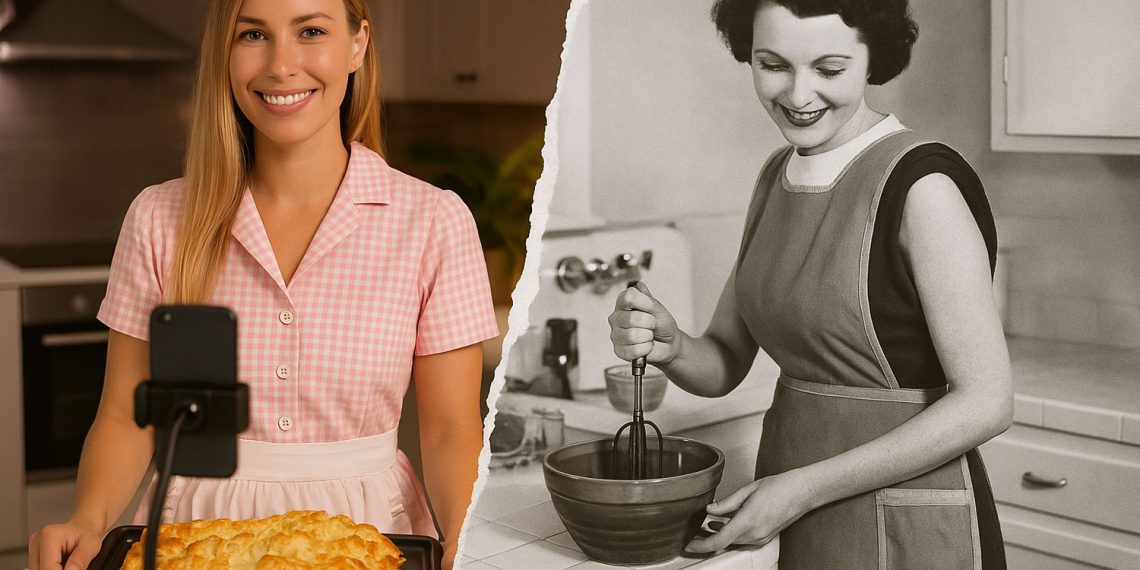Now Reading: Tradwives: How the Social Media Trend Strengthens Right-Wing Ideology
-
01
Tradwives: How the Social Media Trend Strengthens Right-Wing Ideology
Tradwives: How the Social Media Trend Strengthens Right-Wing Ideology

The rise of Tradwives, short for “traditional wives,” has captivated social media audiences in recent years. These women showcase a lifestyle centered around being devoted housewives to their husbands and children, embracing a nostalgic image of 1950s homemaking. However, concerns arise as right-wing parties exploit this trend, blurring the line between lifestyle and ideology.
Tradwives’ online presence depicts idyllic scenes of baking, cleaning, and pampering their husbands, resonating with millions of followers across platforms like Instagram and TikTok. While some Tradwives distance themselves from politics, others inadvertently promote far-right values intertwined with conservative and extremist ideologies.
The resurgence of traditional gender roles extends beyond the internet, as political parties like Austria’s FPÖ advocate for policies reinforcing outdated family structures. This movement is not merely a social media phenomenon but a political force shaping societal norms and challenging feminist progress.
Although Tradwives project an image of contentment and domestic bliss, the reality behind this facade involves risks such as financial dependence and limited autonomy for women. As these influencers commercialize their lifestyles, they perpetuate harmful stereotypes and reinforce regressive gender dynamics in society.
The allure of the Tradwife movement lies in its portrayal of simplicity and tradition, but beneath its surface lies a complex interplay of gender politics and right-wing ideology. This trend highlights the need to critically examine the intersection of social media influencers, traditional values, and political agendas influencing societal norms.






